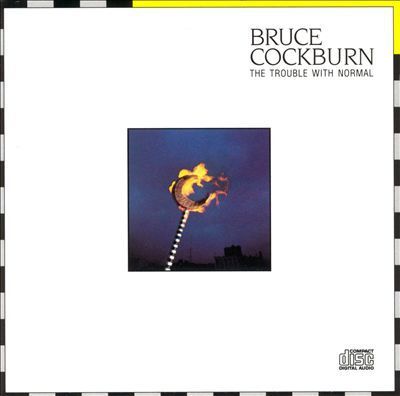Ted Newell's Blog
December 26, 2019
End of the year, end of the psalms
The picture is from Psalm 148.
Look closely.
You can read it from right-hand to left.
“HLL-YH”
H on the right is clear enough
…looks like an inukshuk…
two L s
–space–
then
Y[a]H:
Short version of YHWH, or, the LORD, in English Bibles.
HALLELU-JAH
In the monasteries, monks read all one hundred and fifty psalms, every thirty days.
Every psalm, every month.
They recited in worship, morning and evening.
Psalm 1 blesses the one who walks with the Lord.
In every situation — except one — the protagonist and the reader learn to lean on the Lord of Israel.
The last psalms on the surface are boringly same-same:
They praise the Lord of Israel.
That’s all.
So?
Someone (or someones) put the psalms in an order.
The psalms lead the reader through tough experiences.
At the end of the library of life, the reader is to arrive at praise.
The editor(s) wound up the collection in praise.
It is as if they were saying:
Life is supposed to teach praise.
Education is supposed to result in praise.
If you find yourself further away from God after those experiences that oblige you to cry out for help, then you must be moving in the wrong direction.
One should love the Lord his God with all his heart, all his mind, all his strength.
Psalm 116: “I love the Lord, because he heard my cry.”
I’m not used to thinking about learning — rightly understood — as for praise.
But if I am more plugged into reality, then I am more plugged into the character of the God who made heaven and earth — right?
So, after my wife’s 42 nights in the hospital, here is a picture for praise:
November 12, 2016
Status Anxiety is Big Problem
Did you know that being worried whether the world respects you motivates a lotta lotta behaviour? Alain de Botton has a TED Talk on atheist religion and a book on what love is, among other achievements. I got tipped off to his works on “status anxiety” as a huge or yuge problem when reading another article. Maybe the US election of Tuesday Nov 8 can be begun to be understood if you watch his video or read his book. Rang a lot of bells.
One solution de Botton lists is thinking that your passing life is passing, and he puts up a 17th century Reformation Holland style of painting called Vanitas –example here for your meditation. Watch his Channel 4 special on status anxiety on youtube, gratis.
Filed under: Uncategorized


October 10, 2016
The old structures are gone and at least we know it: R. Scruton on erased civilizations
“Elegies are attempts at reconciliation and redemption, works of mourning in the sense intended by Freud. Strauss’s Metamorphosen is not, in that sense an elegy. It is a work de profundis, which looks back to what has been lost as the returning traveller looks at the bombed-out remnants of his city, in which not a survivor can be found. It is a work without hope, and without any promise for the future. Yet for all that, it is a great work of art; and one that still speaks to us.”
Confessions of a Heretic by Roger Scruton: What is the Best Way to Mourn?
–Someone tell me please: Does nt novelist Walker Percy tell the same story — see Love in the Ruins
Filed under: Uncategorized


“Disgusting!” But is experiencing it some sign of sanity?
(The) sense of disgust warrants some examination. It seems that the most primitive of our five senses, the one that is least bound up with the intellect, is smell. Our eyes see color, but the mind sees things and their kinds: a dog, a house, a flower. Our ears hear vibrations, but the mind interprets and hears words, which themselves are signs of things, many of which are abstract at that. But the smell is immersed in chemicals, in stuff—in stuff most urgent for basic animal life: flesh, blood, excrement, hormones for rutting, and other secretions. What smells good to a vulture, flesh rotting in the sun, smells repugnant to us, because eating such flesh would be bad for us. The smell is then protective; it keeps us from tasting even a little of something that would sicken or kill.
In every language that I know of, words that have to do with bad smells are applied to certain kinds of wicked deeds, …
The Uses of Disgust
Filed under: Uncategorized


Liberalism maximizes able people’s abilities — so what?
“After Liberalism” – is an intentional play on Alasdair MacIntyre’s landmark 1984 book, After Virtue. By the time we reach the conclusion of that book, we are to understand that to live “after virtue” is a fearful matter, one not unlike living in at the cusp of a new Dark Ages, a time in which our main hope is to await a “new and doubtless very different St. Benedict.”
…I propose this theme not to warn of a terrifying political future and urge defence of liberalism to the last breath, but a better possibility that is, at this point, still difficult to imagine. What I want to try to outline are reasons why we should actively hope for an end to liberalism
http://www.abc.net.au/religion/articles/2014/12/11/4146762.htm
Filed under: Uncategorized


Writing is a disciplined struggle
TOBIAS WOLFF: … I began this whole writing enterprise with the idea that you go to work in the morning like a banker, then the work gets done. John Cheever used to tell how when he was a young man, living in New York with his wife, Mary, he’d put on his suit and hat every morning and get in the elevator with the other married men in his apartment building. These guys would all get out in the lobby but Cheever’d keep going down into the basement, where the super had let him set up a card table. It was so hot down there he had to strip to his underwear. So he’d sit in his boxers and write all morning, and at lunchtime he’d put his suit back on and take the elevator up with the other husbands—men used to come home for lunch in those days—and then he’d go back to the basement in his suit and strip down for the afternoon’s work. This was an important idea for me—that an artist was someone who worked, not some special being exempt from the claims of ordinary life.
But I have also learned that you can be patient and diligent and sometimes it just doesn’t strike sparks. After a while you begin to understand that writing well is not a promised reward for being virtuous. No, every time you do it you’re stepping off into darkness and hoping for some light. You can be faithful, work hard, not waste your talents in drink, and still not have it happen. That’s what makes writers nervous—the sense of the thing being given, day by day. You might have been writing good stories for years, then for some reason the stories aren’t so good. Anything that seems able to jinx you, to invite trouble, writers avoid. And one of the things that writers very quickly learn to avoid is talking their work away. Talking about your work hardens it prematurely, and weakens the charge. You need to keep a fluid sense of the work in hand—it has to be able to change almost without your being aware that it’s changing.
…
INTERVIEWER
Do you write in the house?
WOLFF
No, I have a study in the basement of the university library. They offered me a nice place to work with a view of the Stanford hills, and I turned it down for this dump in the stacks because I’m so easily distracted. All I need is a window to not write. The only books I keep with me are a dictionary and some other reference books. If I have a good novel in the room with me, I’ll end up reading that. Writing’s hard. You’ll take any out, if you can. I work best away from the house because I’m too tempted to check for calls and my mail and deal with tradesmen and run an errand, go out for lunch.
INTERVIEWER
Serious writers don’t strike me as lazy—just the opposite, in fact. So why the compulsion to do anything but write?
WOLFF
I don’t know if that’s true for everybody. I hesitate to generalize. I’m sure there are writers who don’t feel that tug away from the desk.
INTERVIEWER
What’s your writing day like?
WOLFF
Boring, if you’re not me. I take a walk or go for a swim, then go to work, eat, take a walk, write, come home. I never go to movies about writers because writers lead very boring lives if they’re actually working. When I was a kid and saw these pictures of Hemingway on safari or fishing in Idaho, or Fitzgerald in Paris, I thought, What an exciting life writers must lead. What I didn’t know is that’s what they do when they’re not writing. What’s exciting is finding a word that’s been dodging you for days, or deciding to cut something you’ve spent weeks on. The excitement’s in the writing. It doesn’t offer much in the way of drama, I’m afraid. Routine becomes invaluable to writers, and that’s why once they hit their stride, their biographies make very poor material.
http://www.theparisreview.org/interviews/5391/the-art-of-fiction-no-183-tobias-wolff
Filed under: Uncategorized


April 14, 2016
Trouble with normal, again
by Bruce Cockburn
http://www.cockburnproject.net/songs&music/ttwn.html
Strikes across the frontier and strikes for higher wage
Planet lurches to the right as ideologies engage
Suddenly it’s repression, moratorium on rights
What did they think the politics of panic would invite?
Person in the street shrugs — “Security comes first”
But the trouble with normal is it always gets worse
Callous men in business costume speak computerese
Play pinball with the Third World trying to keep it on its knees
Their single crop starvation plans put sugar in your tea
And the local Third World’s kept on reservations you don’t see
“It’ll all go back to normal if we put our nation first”
But the trouble with normal is it always gets worse

Fashionable fascism dominates the scene
When ends don’t meet it’s easier to justify the means
Tenants get the dregs and landlords get the cream
As the grinding devolution of the democratic dream
Brings us men in gas masks dancing while the shells burst
The trouble with normal is it always gets worse

Jean Chrétien’s solution for struggling Attawapiskat reserve: they should move
Filed under: Uncategorized


Lohfink’s Jesus of Nazareth rocks

Bible scholar
Snips from my reading. “The openness of the gospels, the openness of Jesus must warn us against regarding people as lacking in faith if they are unable to adopt a disciple’s way of life or if it is something completely alien to them. In any event, Jesus never did.” Disciple is L’s technical term for the inner and next-outward circles of followers. Many others, however, helped Jesus and company occasionally — possibly offering a cup of cold water. These “Joseph of Arimathea’s” (remember him?) did not scatter Jesus’ work, so ergo they helped in his gathering (another term that L. freshens up). Struck me that being non-judgmental to fringe folks is not the usual way of free church groups like Baptists, and I admit that Lohfink seems more right about his anatomy of a Jesus-model church than some rigoristic Puritan-descended groups. Mea culpa. Veni Spiritu sancti. (OK, correct my wannabe Latin.) (p.96)
Filed under: Uncategorized


April 1, 2016
“Fort Jesus,” defensive faith
Yesterday, Paul Carline took the thirteenth session of the biannual Crandall University missions course, “Perspectives on the World Christian Movement,”
Paul and his wife Kelly and family served in mission to Garissa, Kenya, East Africa from 1995 to 2012.
Garissa is near Kenya’s border with Somalia, where many ethnic Somali Kenyan Muslims have made a home for generations. Two generations of Canadian Christian workers served in Garissa before the Carlines.
Christians are a minority in this part of Kenya, a point Paul made forcefully for us by comparing Garissa with Thika, a Kenyan city and outpost of Christendom not far from Nairobi, the capital. In Thika, one might hear Christian worship music in a supermarket. Not so in Garissa.
While the faiths coexist in Garissa mostly peacefully, the marginal status of Christians prompts distinct strategies. One Christian approach is to imagine your community as an embattled outpost in need of stern defense, walled against surrounding threats.
Don’t imagine the majority does not pick up on the fear.
Paul and Muslim friend were walking by a certain church which was building a proud new structure. “Fort Jesus,” said Paul’s Muslim friend.
Paul showed us the picture you see at the top.
What did Paul’s friend mean?
Fort Jesus is located in the port city of Mombasa, Kenya, on the Indian Ocean. It is “Forte Jesus de Mombaça” in the language of its builders, the Portuguese. It was finished in 1596, when European powers were gaining control of historic trading routes along the African coast. The 1600s map below makes clear the control. Fortified trading posts were integral to European control.
As well as a money-making venture on behalf of the Crown and Portuguese merchantile interests, perhaps Europeans as Christians imagined forcible expansion as legitimate expansion of the true faith. The light was forced to dawn, as it were.
Business and mission went together in the Congo of King Leopold or the east Africa of David Livingstone’s famous adventures. Christians have bad episodes to live down.
Since we studied the World Christian Movement this semester, it’s worth remembering that with the end of colonialism, mission-minded Protestants and Catholics have been working out non-coercive, genuinely inculturated mission, propelled by faith. Post-colonial mission has not usually relied on secular power to advance the cause of Christ.
And, the grace of God reached over and past some misbegotten efforts. Think African Christianity late 20th century ‘til now. Think Chinese Christianity. It’s amazing.
Fort Jesus – now a UNESCO World Heritage Site — stands as a contradiction. “Fort Jesus” might even be an oxymoron, an impossible linking of terms.
For Jesus himself was not defensive. That is, he did not take steps to prevent aggression against himself. He did not wall himself off from his sometimes hostile countrymen. He trusted his Father to defend him as he did good and taught.
He knew when his time was not yet come, and absented himself, for sure. He had several close escapes.
But finally his vulnerability before the legal machinery was something he accepted as coming from the hand of God. He trusted his Father to bring good out of his death.
In an era in Western societies with deep challenges to followers of Christ, shall they look for legal walls to protect them? Should they accept possible deprivation of goods and persons?
“…(R)ecall those earlier days when, after you had been enlightened, you endured a hard struggle with sufferings, sometimes being publicly exposed to abuse and persecution, and sometimes being partners with those so treated. For you had compassion for those who were in prison, and you cheerfully accepted the plundering of your possessions, knowing that you yourselves possessed something better and more lasting. Do not, therefore, abandon that confidence of yours; it brings a great reward.
Fort Jesus, a colonialist structure, stands for power to dominate. Colonialism made for an odd faith.
One can see now, as some should have seen before: mission is love is being open to the possibility of suffering. It is like love always must be – open to pain. Ask any husband, wife, father, or mother. Goes with the love territory.
The Cross shouldn’t be high up behind a wall. See again the picture. The Cross has to be naked on a hill so anyone can reach it. That makes for, yes, vulnerability.
Fort Jesus AND Cross? Or, Fort Jesus OR Cross?
Filed under: Uncategorized


March 27, 2016
Easter sunrise prayer for civic leaders
Moncton city hall, March 27th, 2016, 7am AST.
(With huge thanks to edgy “preachersmith,” and the Book of Common Prayer)
“We come to you in the name of the one who told us, ‘from everyone to who has been given much, much will be demanded; and, from the one who has been entrusted with much, much more will be asked.’
For the Queen of Canada Elizabeth and the Governor General David
For Justin, the Prime Minister and the cabinet and all civil servants
For the secretary general of the United Nations and its assemblies and councils
For members of parliament and the senate
For judges of the Supreme Court of Canada
For premiers, cabinet members, and legislators of all provinces especially Brian and Cathy, Ernie, and Bruce*
For the mayor of Moncton George; of Dieppe, Yvon; of Riverview, Ann
By your help may they seek justice and truth, peace and concord.
Almighty God, who can bring good out of evil, and who can make even the wrath of humanity turn to your praise:
Thank you for arranging that a semblance of order remains in our shared life.
Praise be to you for not allowing disorder and anarchy.
We lift up our hearts, O Lord, for these who carry civic and political responsibilities.
Make them sensitive to the effects they have on the most vulnerable in society. Grant them the courage to gladly stand up for them without hesitation, apology, or compromise.
Surround them with good counsel, friends, and support, lest they find themselves surrounded by those who would do evil to them or through them.
Protect their hearts from callousness that can grow from being exposed to the friction and toil of gossip, lies, misrepresentations, misunderstanding, rumors.
Pour out on them a steady shower of your discernment and wisdom that they may be quick to forgive of things past and equipped to forge a foundation for better relationships between all in the future.
Still the tongues of all who heartlessly criticize, judge, and demean these servants of yours. Remind us to do to others as we would have them do to us.
Almighty God, kindle, we pray, in every heart the true love of peace.
Give space for the gospel to increase so that in tranquillity your dominion may increase
Through Jesus Christ our Lord.
==
Sources
http://preachersmith.com/2013/09/30/a-prayer-for-all-civil-servants-and-politicians/
Photo: Wikimedia
*Brian Gallant, Cathy Rogers, Ernie Steeves, Bruce Fitch – the premier of our province and Moncton area elected representatives especially close to those assembled for worship and prayer
Filed under: Uncategorized Tagged: government, leaders, leadership, peace, prayer, sacrificial







